The Wild Fennel Pesto is a delicious sauce with Sicilian tradition perfect for dressing pasta, on canapés or with focaccia. So, not just main dishes but also appetizers and starters! This spontaneous aromatic herb is one of my favorites. It grows lushly along the edges of meadows even in Tuscany, but usually, only the dried flower is used. I have a true passion for this spice and I always put it in my bread dough. Since I saw the bunches for sale, a whole new world opened up for me and the first thing I wanted to do was make a nice pesto! It’s very easy to make, I used my Thermomix but any food processor or immersion blender will work…it will be a real discovery, I promise!
For more delicious sauces, I suggest taking a look at these links:
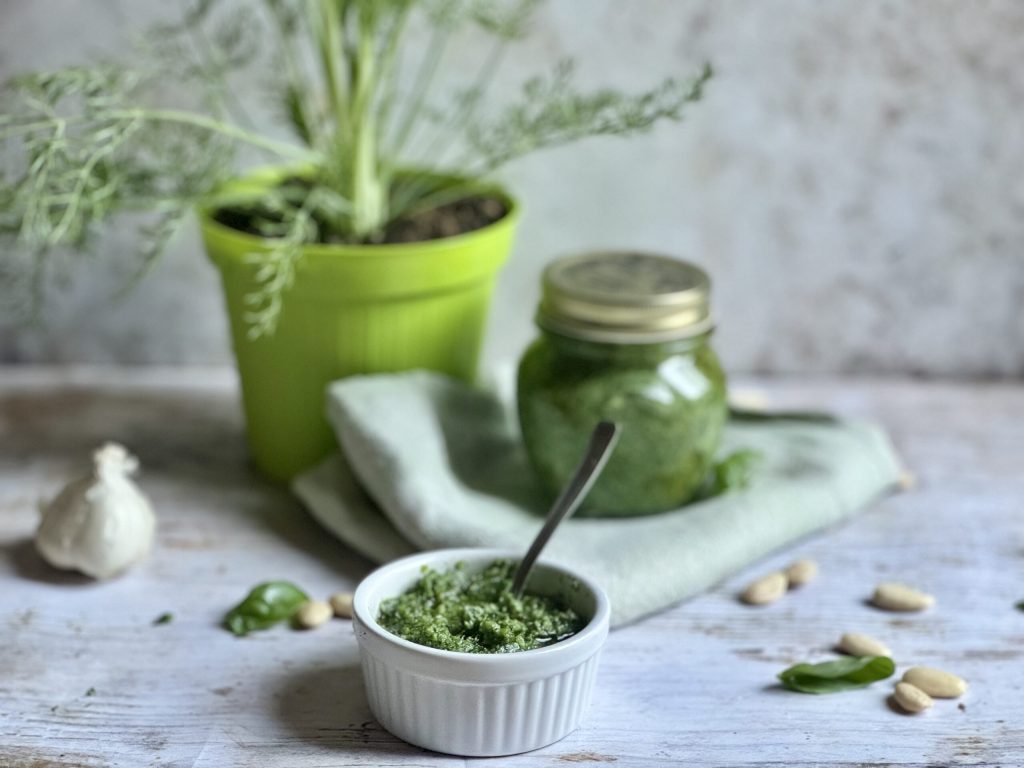
- Difficulty: Very Easy
- Cost: Very Economical
- Rest time: 30 Minutes
- Preparation time: 15 Minutes
- Cooking methods: No Cooking
- Cuisine: Italian
- Seasonality: Spring, Summer
Ingredients for Wild Fennel Pesto
The ingredients
- 2 bunches wild fennel (about 6.5-7 oz (cleaned))
- 15 g basil
- 1 clove garlic
- 50 g pecorino romano (grated)
- 50 g grated parmesan
- 70 g blanched almonds
- 150 g extra virgin olive oil
- 10 g salt (ONLY IF NEEDED)
Useful Tools for Wild Fennel Pesto
- 1 Food Processor
- 1 Bowl
- 1 Spatula
- 1 Paper Towels
- 2 Jars
- 1 Casserole
- 1 Scissors
Steps
Making wild fennel pesto is very easy. The only consideration (unlike many other similar raw vegetable sauces) is the need to blanch this wild herb to make it a bit less strong and easier to chop. The fennel indeed has some parts that are very tough and resistant.
Clean the wild fennel bunches, making sure to remove the hardest and woodiest parts.
Weigh what’s left, it should be at least 6 oz. Break the longer stems to make all the operations easier.
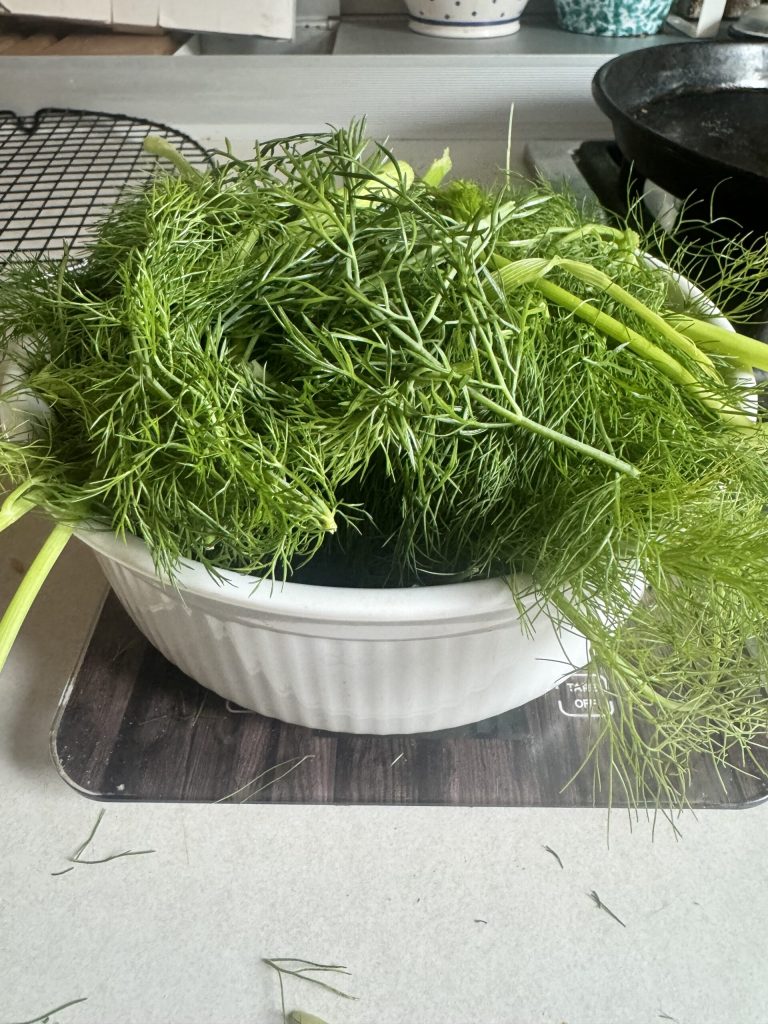
Put a casserole on the heat with a pinch of coarse salt. When the water comes to a boil, immerse the wild fennel.
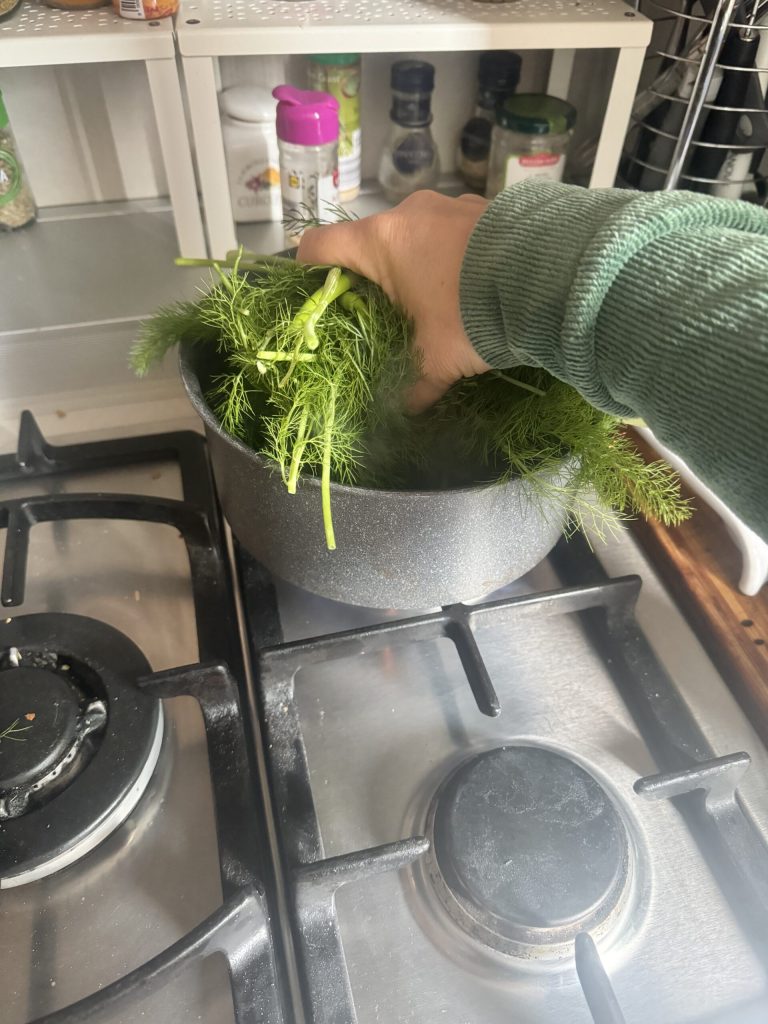
Blanch the fennel for 3-4 minutes at most, turning it.
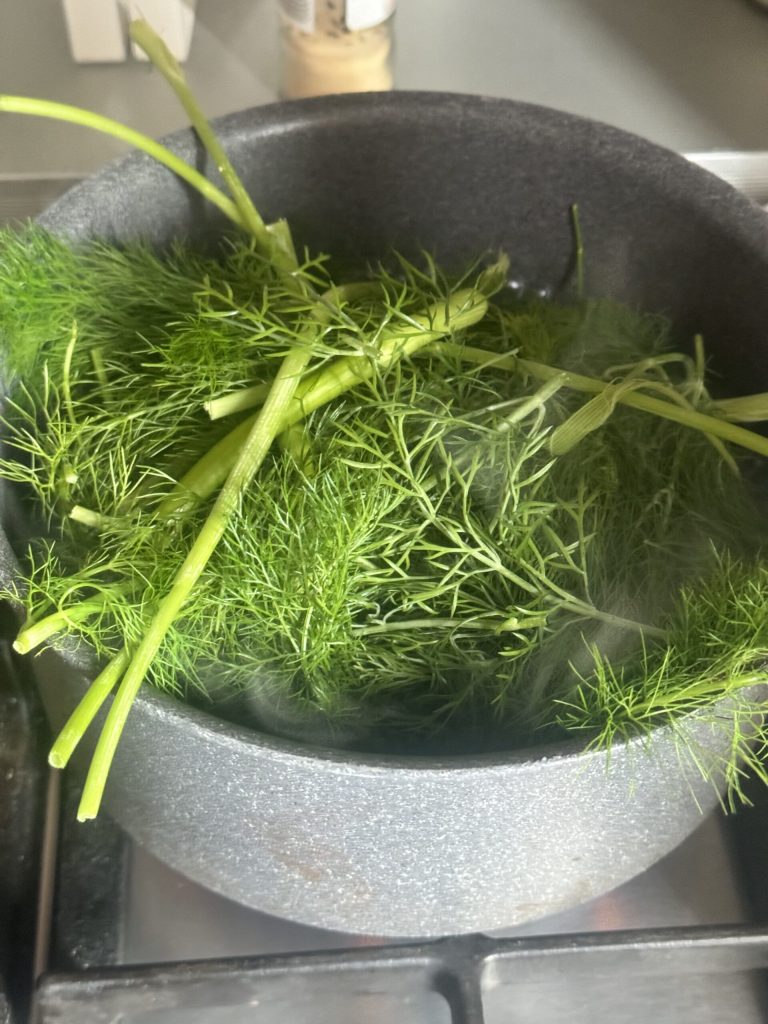
Turn off the heat and transfer the fennel to a bowl full of very cold water. This will stop the cooking and help maintain the plant’s bright green color.
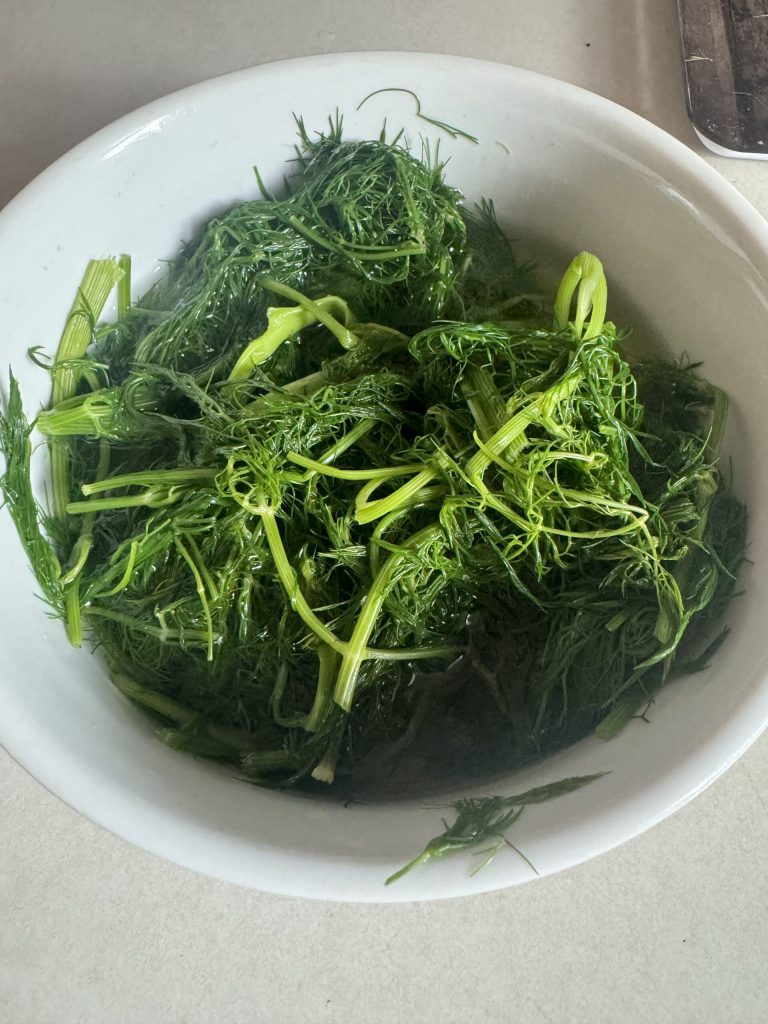
After a couple of minutes, spread the fennel on a dish towel and with absorbent paper (or another dish towel) dry it thoroughly.
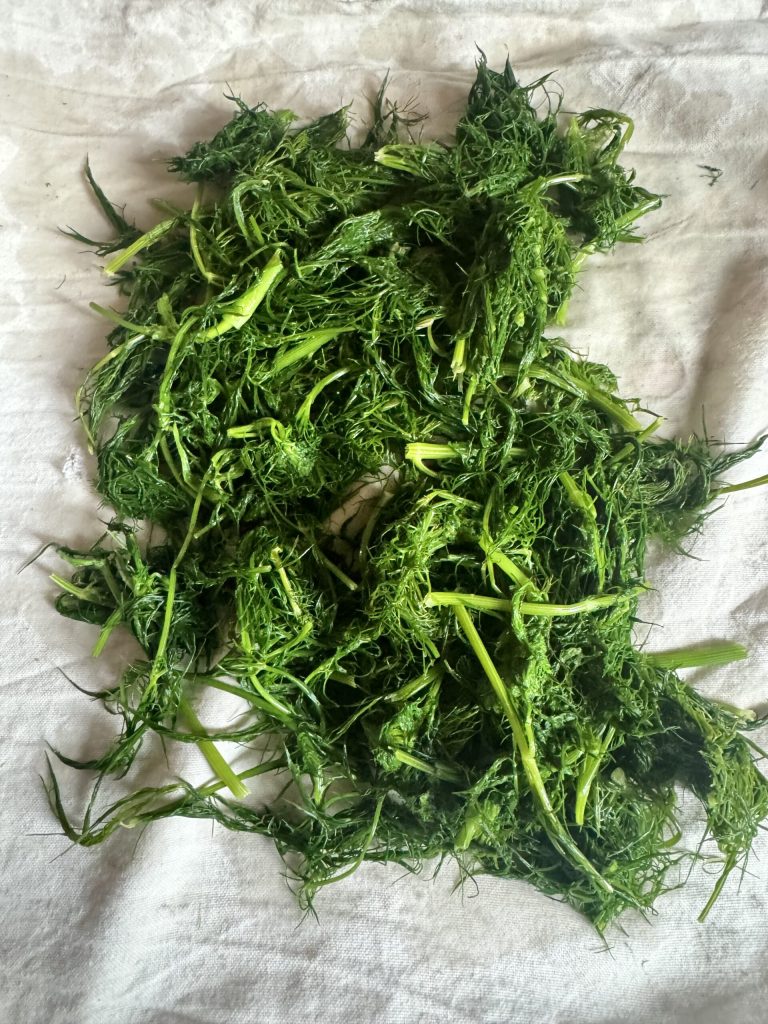
As I explained in the introduction, I used my trusty Thermomix TM31, but any food processor or immersion blender can be used. If desired, after making the pesto with the food processor, you can also opt to give it a “pass” with the immersion blender to make it smoother. I like it a little rustic, but even smoother isn’t bad!
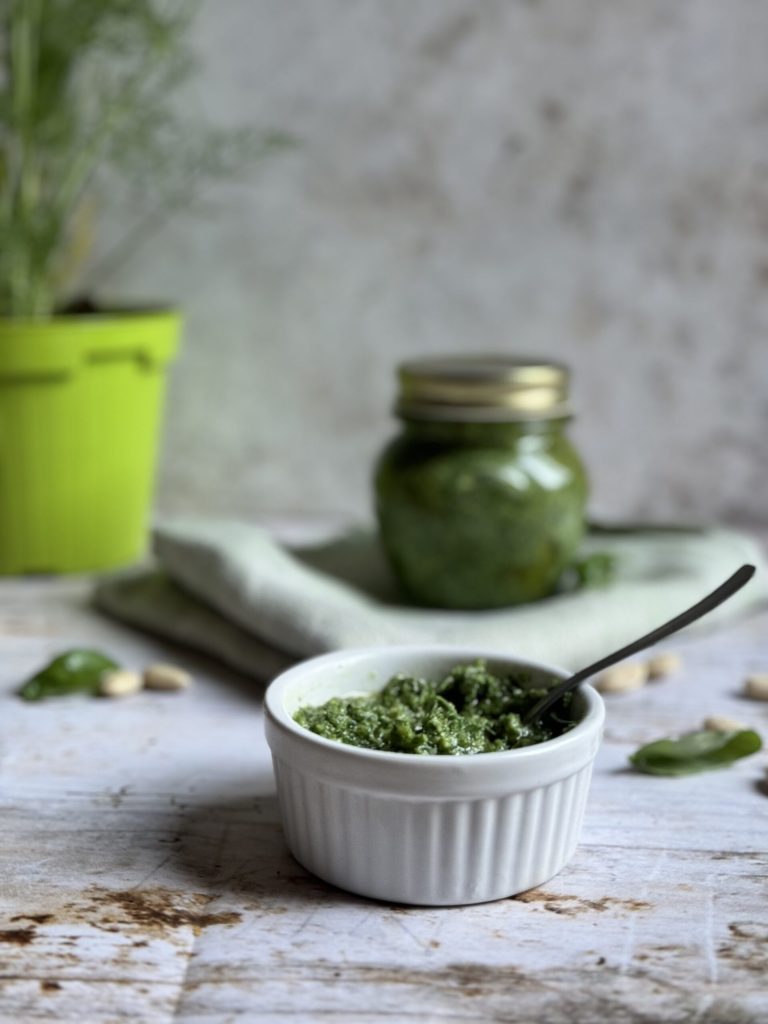
In the Thermomix, put the blanched almonds and the garlic clove after removing its core
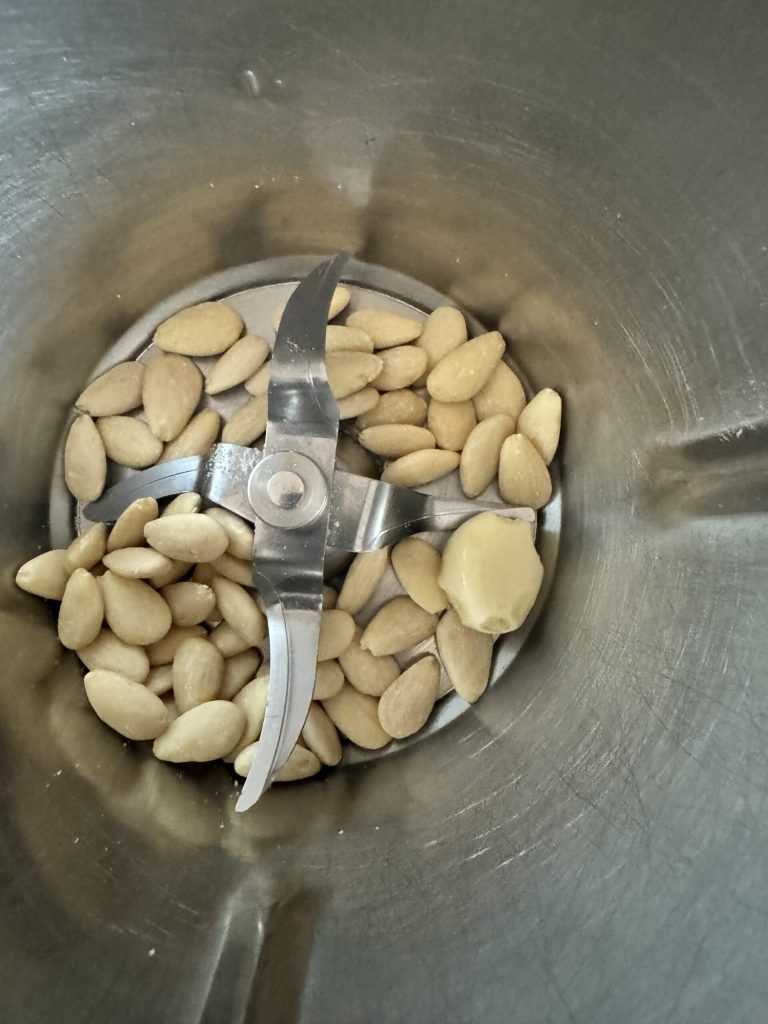
Blend at speed 7-8 for 10 seconds.
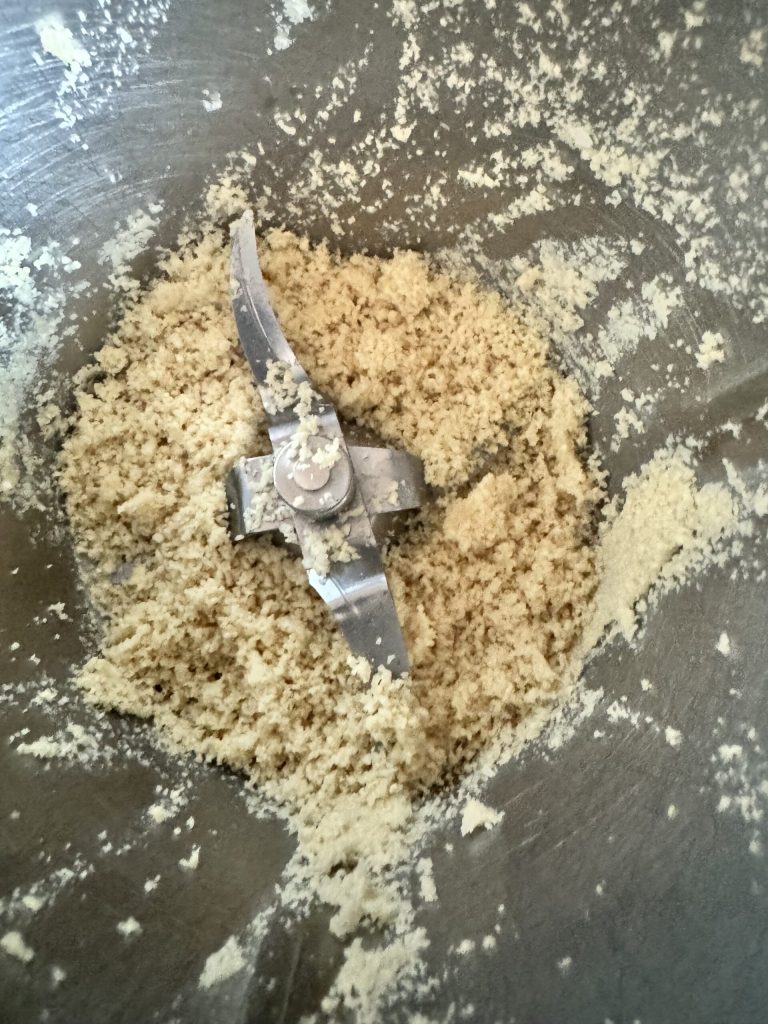
At this point, add the wild fennel and basil leaves. The latter are optional, but I think they add a sense of freshness to the whole pesto. I recommend breaking the fennel a bit to prevent it from tangling with the blades of the processor.
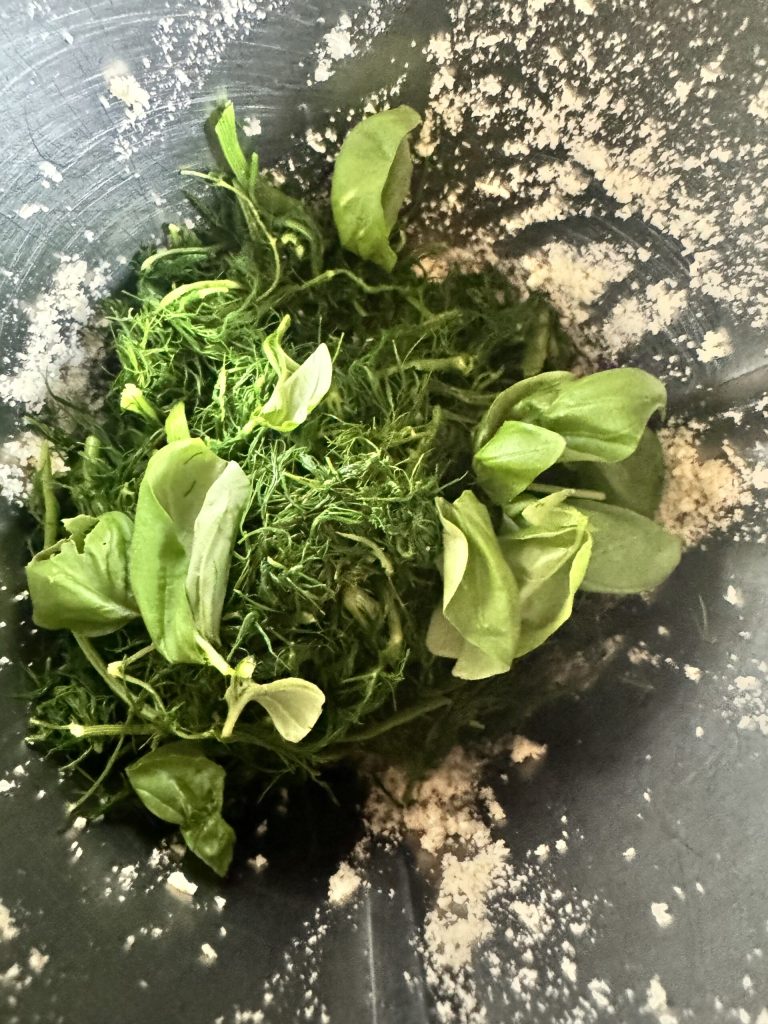
Grate the pecorino romano and parmesan cheese and combine them in a bowl.
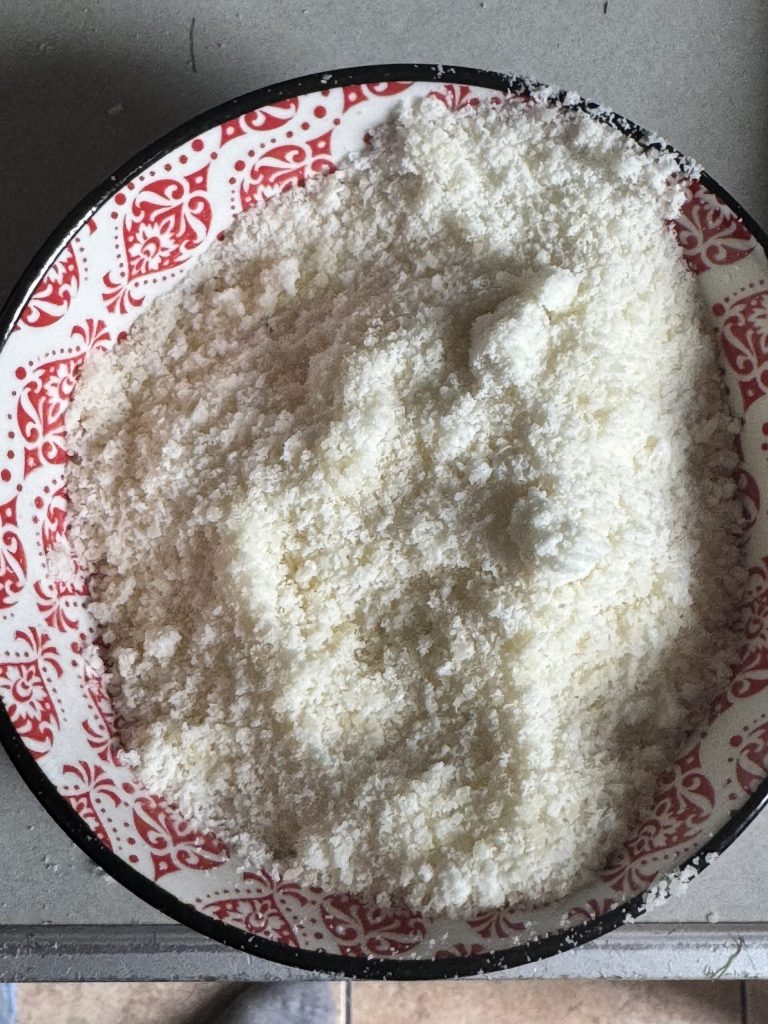
Add them to the bowl of the food processor.
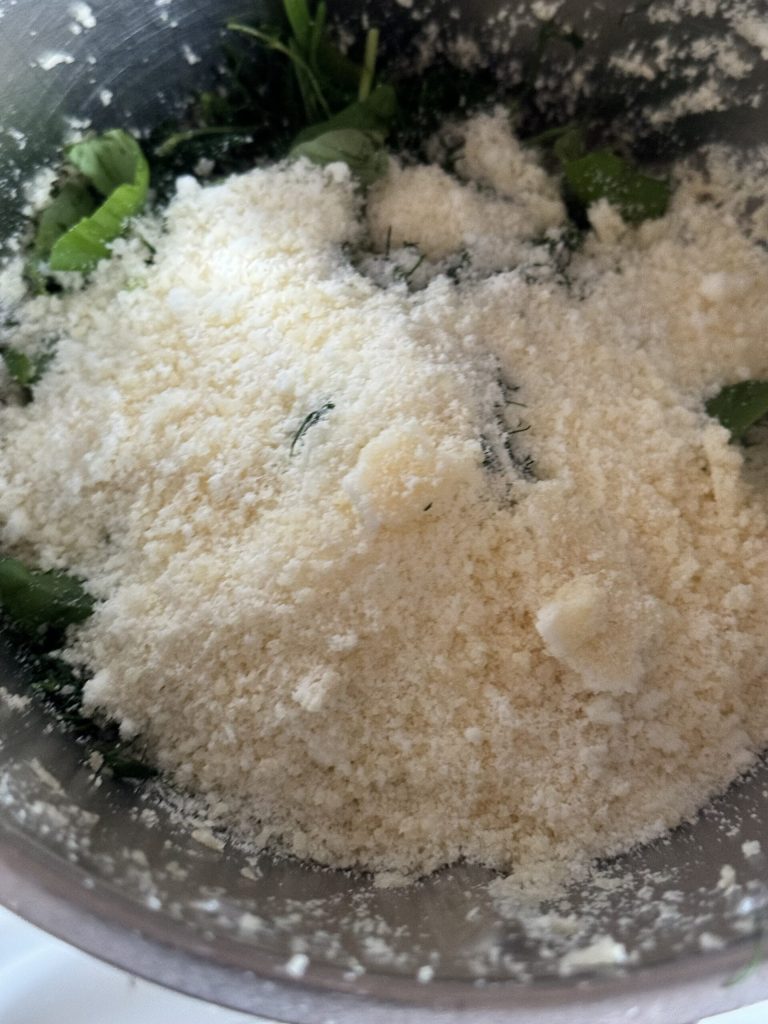
Blend everything together, adding half of the oil in a thin stream through the cap hole. I started in the Thermomix at speed 5 for about 1 minute, then increased to 7-8 for another minute. But this also depends on how smooth you want the sauce to be.
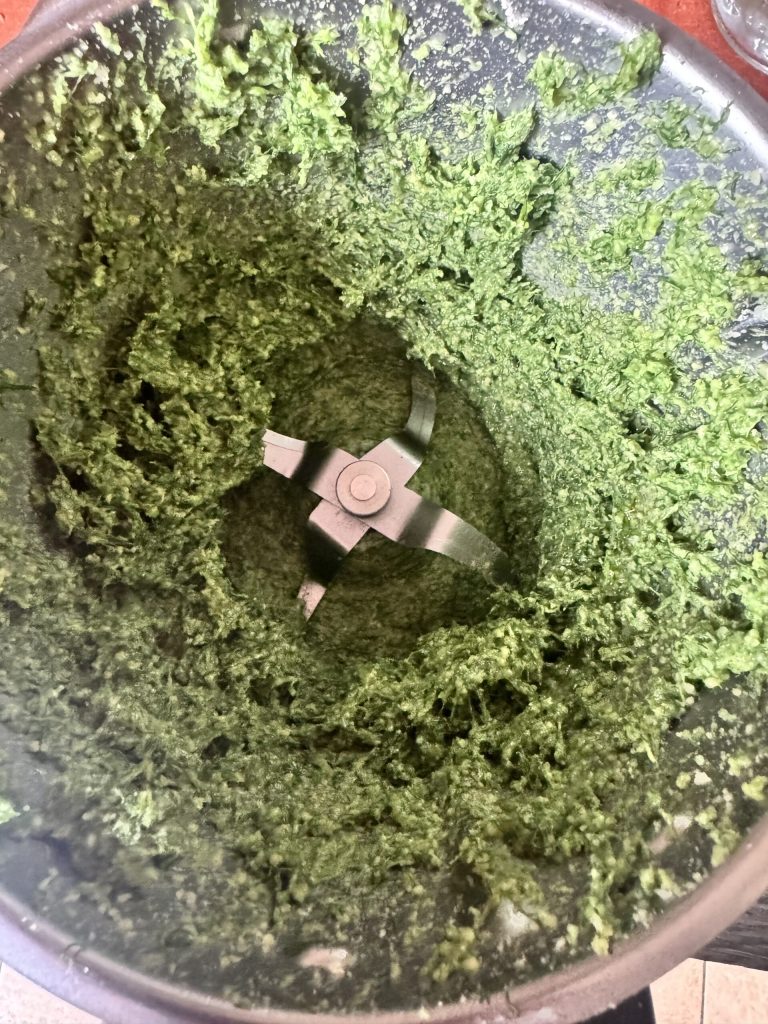
At this point, the pesto is ready. Transfer it to jars, adding the remaining oil and mixing well. Seal tightly and store in the refrigerator until use.
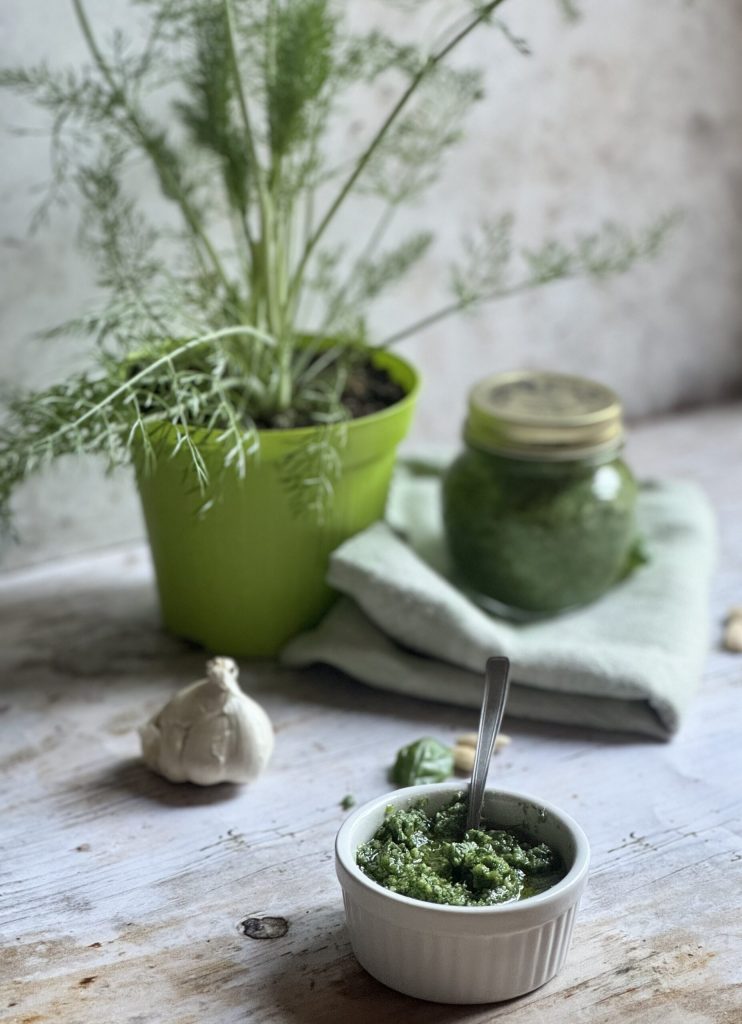
Wild fennel pesto can be stored for two to three days in an airtight jar with a layer of oil on top, as the jar has not been vacuum-sealed. This sauce is delicious on bread; with an anchovy fillet, it becomes a wonderful bite to offer at aperitifs. Of course, it is an excellent substitute for the different types of pesto available on the market for dressing pasta! If you come up with other uses, come tell me on Instagram, I’ll be waiting for you!
FAQ (Frequently Asked Questions)
I don’t have almonds. What can I use?
Almonds can be replaced with pine nuts or cashews in the same quantity.
If I don’t have exactly the right amount of fennel, what should I do?
You can make up for the “missing” amount by adding more basil. It’s also fun to play with the proportions between basil and fennel to achieve a different flavor each time!

